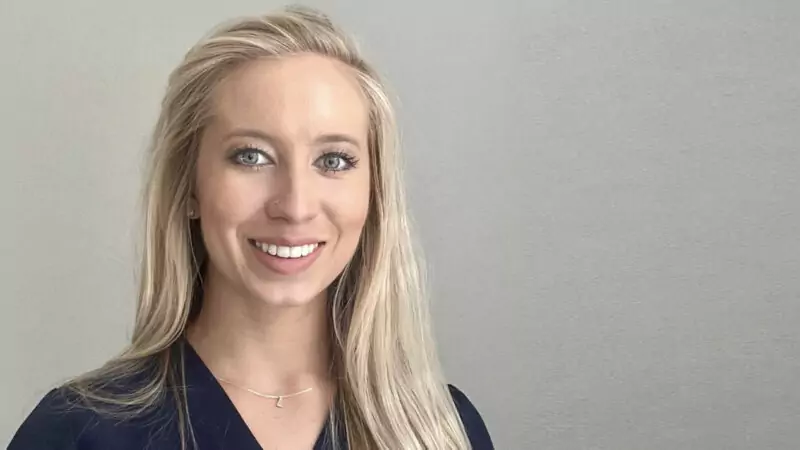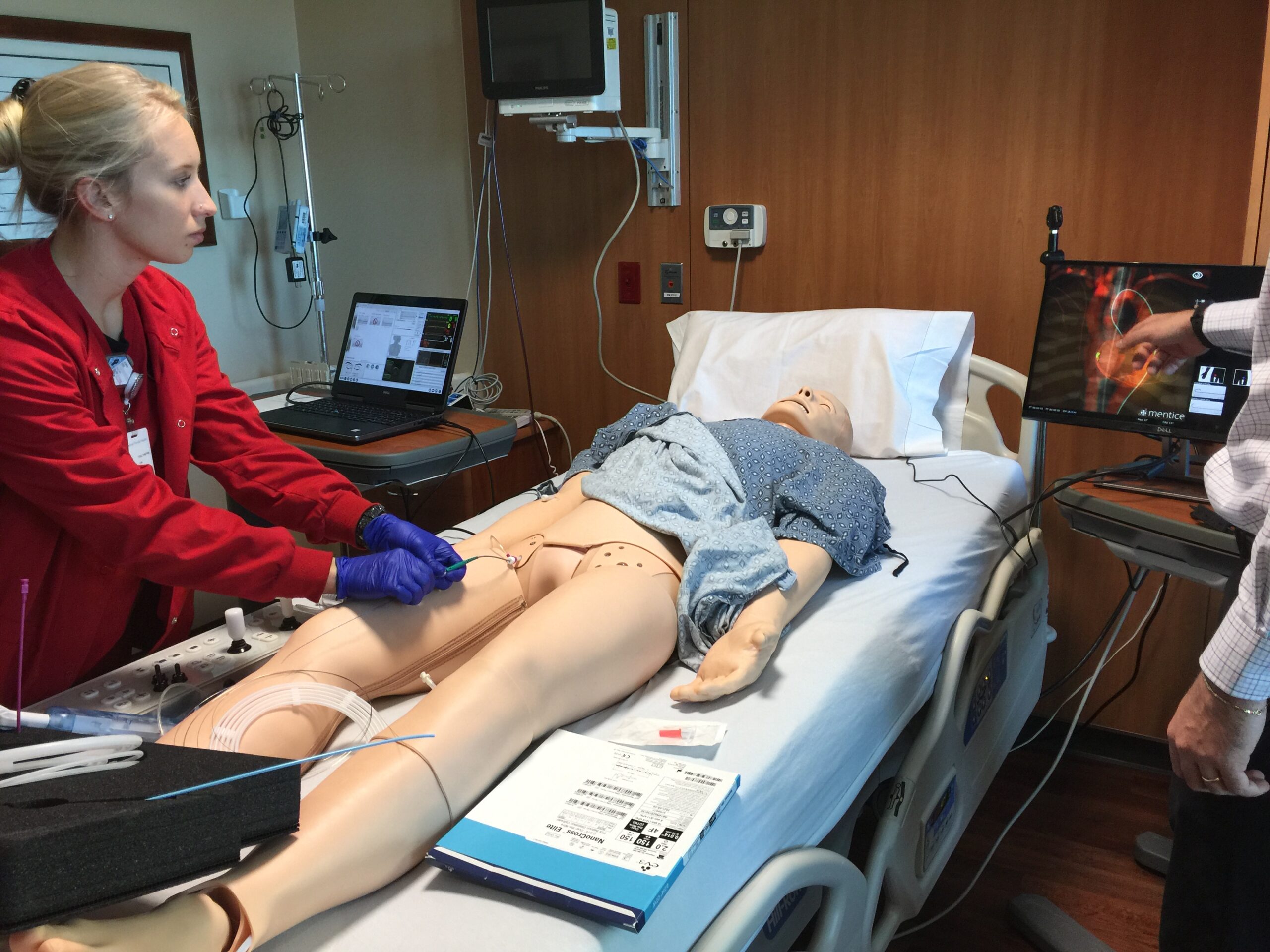Polk State Cardiovascular Technology grad forges career path outside of the lab

Lauren King admits, “I had no idea that an Associate in Science could take me so far.” Her Polk State College degree in Cardiovascular Technology has led to a rewarding and unexpected career outside of the catheterization lab.
King applied for both Polk State’s highly sought, limited-access Physical Therapist Assistant and Cardiovascular Technology (CVT) programs but wasn’t admitted on her first attempts. In 2018, she was accepted as an alternate for the CVT Program and was able to enroll that year.
“It was tough, but it was rewarding,” King said. “The Polk State CVT Program is where I developed my passion. It opened a lot of doors for me.”
“You’re not limited to the cath lab,” she explained. “You can take your degree and skills anywhere in healthcare. The program gives you the awareness you need about your patients. It gives you the tactile feel of handling all the equipment. It teaches you how to anticipate what the doctors need – a skill that you would use in any healthcare setting.”
“The Polk State CVT Program is where I developed my passion. It opened a lot of doors for me.”
A cardiovascular technologist traditionally assists physicians in diagnosing and treating cardiac and peripheral vascular conditions. They perform procedures including stent implants, cardiac pacemakers, defibrillators, and tests to diagnose heart disease.
King received her Associate in Science in Cardiovascular Technology in 2020 and began her career in the cath lab at BayCare’s Mease Countryside Hospital in Safety Harbor. Mease Countryside is a leader in state-of-the-art diagnostic and treatment services in heart care.
“I loved the chaos,” she described of her time in the hospital. “I became the best at what I was doing, I was training everyone, and I was a resource to my colleagues. I took pride in my work and efficiency.”
She described what drives her.
“What’s important to me is that the experiences I can acquire [and] the more successful that I am, the better resource I am for other people,” King said. “Whether it’s my family, my patients, or my colleagues, I can be there for them.”
She credits Polk State for preparing her well for the field.
“The content that is taught is as close as you can get to real life,” King said. “The program director and instructors put in a lot of effort to prepare you for the real world.”

“After you graduate, all the things you read and were lectured about are happening. You connect the pieces, not only from a situational standpoint but also from a kinesthetic, hands-on standpoint,” she added. “There was never an experience in the cath lab where I thought, ‘I’ve never seen this before.’ I felt very prepared for the career.”
She has since “withdrawn from the chaos,” King laughed, “but I still have a competitive spirit. I just get to use it in other ways because I’m passionate about what I’m selling.”
King now serves as Clinical Specialist for Medtronic providing and operating cardiovascular technologies and medical devices for physicians and healthcare systems. She explained that it is similar to serving in a cath lab, but the cases she works on in her new role are mostly elective procedures.
“Before, I was on-call working emergencies, sometimes at 3 in the morning,” she said. “Now I’m never going to have an emergency and don’t have to take a call, which is nice.”
She is invited by doctors to work on elective cases. She travels Monday through Friday to different facilities between Tampa and Naples to assist healthcare teams. During the cases, she utilizes and teaches cardiovascular technologists how to use Medtronic tools and devices. This is called “case support” in the medical world.
“Supporting vascular cases is one of my favorite things to do because there’s no real standard to treating these patients,” King said. “You can be as creative and autonomous as you want. It’s amazing to see how these patients improve and the studies that go into it.”
King is also pursuing a bachelor’s degree in business to build upon her work in the industry.
“The content that is taught is as close as you can get to real life. The program director and instructors put in a lot of effort to prepare you for the real world.”
She says the opportunities are endless, for both her own career goals and those of aspiring students. Polk State’s CVT Program boasts a 100% job-placement rate and a 95% licensure pass rate on first attempts, with many students receiving job offers before they even have their Associate in Science degrees in hand.
“As a student, I had no idea that I would be scrubbing hybrid cases in the operating room, doing electrophysiological studies (EP), or working in outpatient labs,” King explained.
“My motto is to get comfortable with being uncomfortable because that’s how you’re going to grow. It’s going to feel awkward until you’ve done it a million times, so get out there and do it.”
The Cardiovascular Technology Program at Polk State accepts applications from April 15 through June 30 for classes that begin in August. Interested individuals are encouraged to visit polk.edu/cvt for more information about the program and admission criteria.

